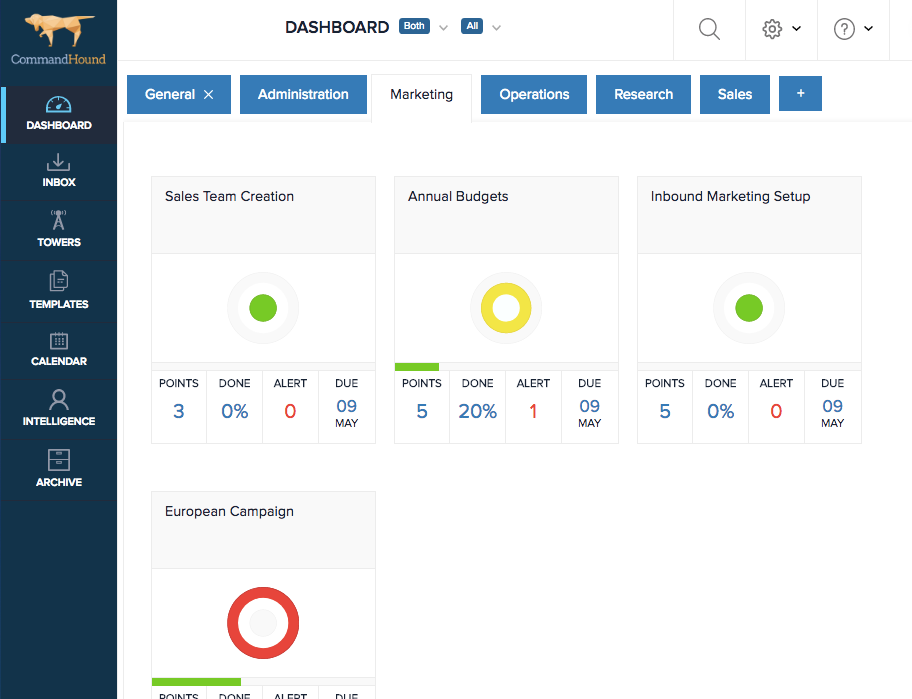How Best to Delegate Work and to Make It Stick
Every manager has faced the disappointment of assigning a task to a team member and finding out that the task was ignored or slipped through the cracks.

Delegating work can be difficult for managers, who are hesitant to release ownership of their team’s work, and it can be especially difficult when the delegation fails. Micromanaging projects and teams is not a productive use of management time, but dealing with the consequences of failed delegation can be even more time consuming.
So how do teams build a system that allows managers to delegate to employees without opening the team up to potential disasters if someone accidentally drops the ball? Read this guide to learn how to delegate work.
It’s All About Trust
There is a level of trust involved in delegation, and failed delegation leads to a breakdown of that trust. But if managers can’t trust their teams to carry out the tasks assigned to them, what can they trust them to do? This central issue– trust– is absolutely crucial for successful delegation.
Build Trust On Your Team By Creating a Culture of Accountability
Interpersonal Trust
Building trust strong enough to support delegation can take a variety of forms. Some managers choose to take the more interpersonal route, where team building activities and personal relationships keep employees personally accountable to one another. In these situations, an emotional relationship would stop someone from forgetting to do something or from unloading their tasks on a coworker. However, this system rarely works since strong personal relationships are difficult to form with every individual on a professional team.
So, what works best to teach managers how to delgate work most effectively? Or, to get team members to take ownership and pride on completing tasks that are delegated to them?
Accountability Culture
In most cases, building a strong culture of accountability will ensure that team members are emotionally and intellectually committed to completing things assigned to them, both because they have been clearly told what is expected of them and because they know that their work is important and closely monitored.
Accountability means that individuals:
- Know what they and their teammates are responsible for
- Know that their work is important
- Know that their preformance is being tracked and it will be rewarded
- Are trusted to perform because of both a personal sense of responsibility and a sense of responsibility to their team
When teams trust each other and are held accountable for their own performance and that of their teams, they can more easily trust that things are getting done. In a workplace with a strong culture of accountability, no one wants to be the person who dropped the ball.

A Team Flourishes When They Understand What Needs to Be Done
Software Support
This culture, which has accountability and trust go hand-in-hand, can be enhanced, enforced, and streamlined with accountability software platforms like CommandHound. With CommandHound, teams’ tasks are assigned to individuals and given clear due dates. This clearly communicates individual responsibilities and allows employees to track and hold themselves responsible for their own deliverables. If due dates pass and tasks have not been addressed, these tasks are escalated to managers until they get done.
With this system, managers can entrust tasks to specific team members, but also be sure that these tasks will not be forgotten. This both encourages delegation of responsibilities and prevents micromanaging, since managers are only notified about tasks or projects that have fallen behind. CommandHound drives accountability by also tracking completion performance at the indvidual and team levels. This information can then be tied directly to the individual’s performance review process.

The CommandHound Dashboard Shows Which Projects Are On Track and Which Need Attention
Managers can default to trusting their team members to accomplish their to-do’s, only interfering when CommandHound notifies them of a specific lapsed deadline. These failsafes are in place just in case, but a strong culture of individual and team accountability means that they will rarely need to be used.
Trust and accountability free up management time to focus on bigger opportunities and issues, while projects keep running like clockwork.
Next Steps
Learn more about how to successfully delegate with CommandHound by requesting a complimentary 15-minute demo today:

